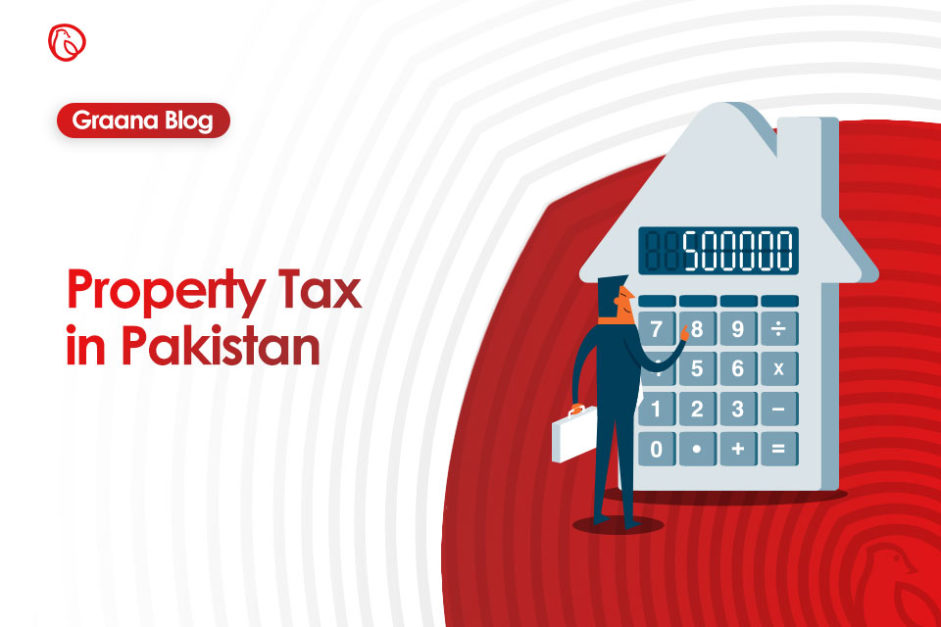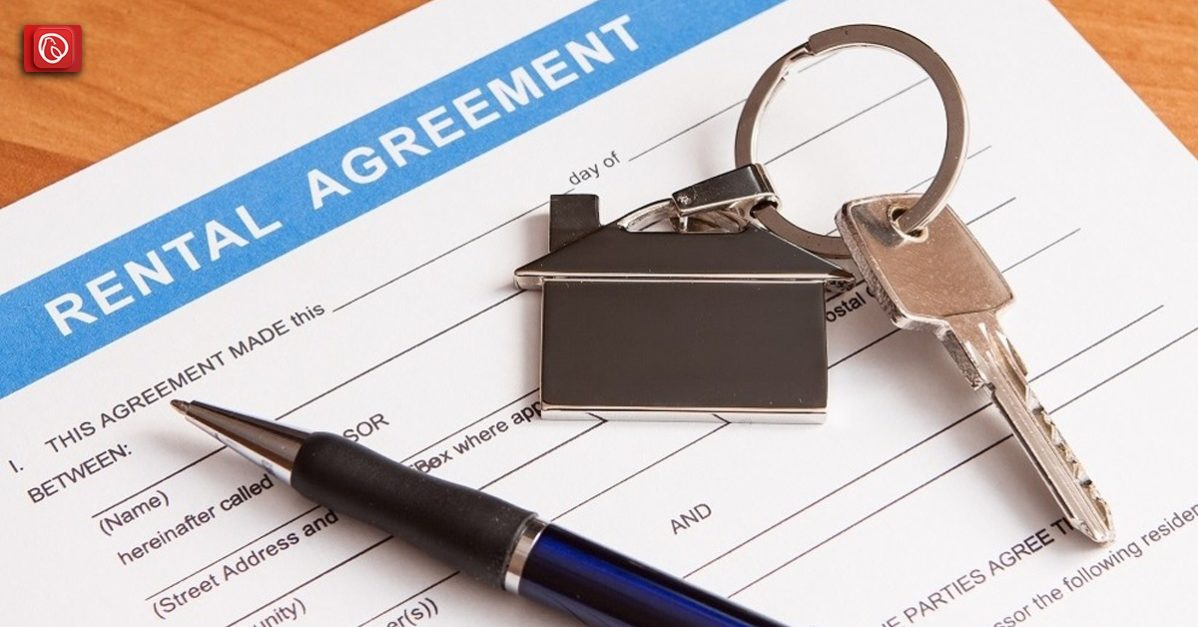So, you want to bring a change in society? And you also want to contribute to its development?
Good! Start paying taxes.
Yes, you heard me right!
Being a responsible citizen is crucial for the development and prosperity of a society. Responsible citizens make sure that the country is doing well socially and economically.
We often believe that becoming a responsible citizen is an impossible task. However, this is not true. With baby steps and small changes, you can do wonders.
One of the easiest things to straighten up society is to pay your taxes with honesty.
If we really want to see our country flourishing and making advancements by leaps and bounds then we also need to contribute to this cause. Property tax varies from city to city. If you are looking for an exceptionally well and comfortable residence, then Rawalpindi and Islamabad should be on your list.
The majority of Pakistani people do not pay taxes. This, in return, weakens our economic and financial conditions. The government does not get enough money to pay for the infrastructure, healthcare system, education, and security. Also, due to the lack of taxes, the government has to rely on external sources to generate money. This includes loans from other countries and banks on high interest.
If you are calculating the tax on your house, then you first need to have information about the plot size and how to know them accurately.
Less than one percent of Pakistanis pay property taxes. This number is really low and dangerous for the economic health of a country.
We have designed this article to educate people about property taxes. It will help you to understand the types of taxes, how you pay them, the current rates, and more.
What is a Property Tax?
Property tax is a certain amount of money that a landowner has to pay to the government. These taxes are taken to help the government financially. Your tax amount is used to pay for salaries, build infrastructure, purchase goods, etc.
Also, the property tax does not cover your house alone. The property includes all kinds of tangible assets that you own including any plot in your name, house, office building, and farm, etc. You should follow real estate YouTube channels to get to know about this mega-industry real estate marketing trends include property tax, trends in real estate, and many more.
No doubt, today, building your home can be very expensive and difficult. With material costs, labor, and taxation, the overall costs increase by leaps and bounds. However, there are many banks in Pakistan that are providing home loans. Tax on purchase of property in Pakistan in 2020 is generally 25%.
During turbulent times like today, it is crucial to work on your finances. Do not let your money sit in a corner. There are many business ideas in Pakistan with small investments, each having their pros and cons. Invest your hard-earned money into different investment opportunities in Pakistan and let your cash grow. There many construction companies developing real estate projects in which you can invest in. No doubt, investment is important for financial stability. Get all the information for the process of driving license online verification in Pakistan.

Tax Year in Pakistan
The tax year consists of 12 months. However, the sequence of tax months is different. The tax year starts from 1st July and ends on 30th June of next year. For instance, the property tax year in Pakistan in 2019 started from 1st July 2019 and will end on 30 June 2020. Review real estate books to gain valuable insights into the real estate industry tax on commercial and residential property etc. Books are the perfect resource for you.
Types of Property Taxes in Pakistan
| Type of Tax | Definition | Rate |
| 1. Capital Value Tax | Capital Value Tax (CVT) is the price set by the FBR. They are the official rates of the property set by the District Commissioner offices across the country. | The Capital Value Tax or CVT is levied at the rate of 2% of the recorded value according to Finance Act, 2006. |
| 2. Capital Gain Tax | A capital gains tax is a tax on capital gains incurred by individuals and corporations from the sale of certain types of assets, including stocks, land etc. | According to the Finance Act 2017, CGT is levied only when the property is sold within three years of its purchase. The rate of taxation is 10% for the first year, 7.5% if sold during the second year and 5% if sold during the third year. |
| 3. Withholding Tax | a tax deducted at source, especially one levied by some countries on interest or dividends paid to a person resident outside that country. | The withholding tax rate on the dividend is 12.5 percent where the recipient is a filer of Pakistan tax return and 20 percent where the recipient is a non-filer.
Royalties and fees for technical service paid to non-residents (that have no permanent establishment in Pakistan) are subject to withholding tax of 15 percent. |
1. Capital Value Tax
When you purchase any property, you have to give a certain amount of money to the government. According to the Finance Act, 2006, the capital value tax is imposed at the rate of 2% of the recorded value. However, according to the new budget, the total capital value tax for an urban area will be 2% and stamp duty will be 3%. Stamp duty is a certain amount that you pay for the legal documents of the property.
2. Capital Gains Tax
This tax is the opposite of capital value tax. Capital gains tax is a certain amount of money that the seller has to pay when he sells his property. The tax is applicable to the profit earned by the seller. According to the Pakistan finance act 2017, capital gain tax can only be levied when the property is sold within the first three years after the purchase. Also, the tax brackets change every year. During the first year, the tax is 10%, in the second year it is 7.5% and in the third year, the tax rate falls to 5%. After three years, the seller is not obliged to pay the capital property gains tax in Pakistan.
The following table will give you a fair idea about the taxation policies regarding the property:
| Year | Tax Rate (%) |
| 1 | 10 |
| 2 | 7.5 |
| 3 | 5 |
3. Withholding Tax
The withholding tax is a mixture of capital gains tax and capital value tax. It is a specific amount that both the buyer and seller have to pay when a property is sold.
According to the withholding tax rates in Pakistan 2018-19, the buyer of the home who is also an income tax filer has to pay a 2% withholding tax, whereas a buyer who is a non-filer has to pay 45% tax.
Can you see the difference in the tax bracket for tax filers and non-filers? This huge increase in tax rate is to ensure that people are becoming tax filers. Similarly, the sellers of the property have to pay 1% tax if they are filers, and 25% if they are non-filers.
- If you want to know the accurate tax amount, then head towards the taxation website of the Government of Pakistan and see the list for proper property valuation.
Things You Need to Apply for Property Tax Records
- Application from a registered owner of the property in plain paper court fee duly affixed
- Copy of CNIC of the applicant
- Proof of payment of Property Tax up-to-date
What to do for the assessment of your property?
For tax payments and calculations, you need to assess all tangible assets.
Assessment of the properties is based primarily on the nature of occupation and the type of building.
Annual value of the properties is calculated through these yardsticks. On the basis of the annual value of the property unit, Property Tax is charged on the rates mentioned above.
Timings for the Property Tax Payments
The Property Tax may be deposited on or before the 30th day of September with 5% rebate of tax for the current financial year. Time allowed for payment is 30 days from the date of serving of Demand Notice accompanied with the Challan Form.
The tax is deposited into the Treasury or State Bank or in the specified branches of the National Bank of Pakistan. Payment can be made through a cheque (accompanied by Challan Form) drawn on a scheduled bank in favour of the Excise & Taxation Officer of the District concerned. Get to know cost of building a swimming pool in Pakistan.
Rebate and Surcharge
Rebate means a partial refund to someone who has paid too much for tax, rent, or a utility whereas surcharge means an additional payment that you have to pay on your taxes.
- A rebate equal to 5 % of the amount of annual tax for the financial year is allowed if the amount of annual tax paid in lump sum on or before the 30th September of the financial year.
- A late payment surcharge at the rate of one percent of the gross payable tax shall stand imposed on the first day of every month of delay if the tax payable for any year is not paid by the 30th day of September of the said year.
Which Properties are Exempted from Tax?
There are certain categories of assets that are being excluded from the tax calculations. These categories include:
- Residential houses constructed on a land area less than 5 Marla other than the locality of category “A”
- The Property is not capable of commanding annual rent exceeding PKR. 4320/-
- A single house not commanding annual rent exceeding PKR. 6480/- if occupied by the owner for his residence
- The buildings owned by widows, minor orphan, and/or disabled person tax liability of which is up to PKR.12150/- per annum are exempted
- One residential house up to one Kanal owned and occupied by a Federal or Provincial Retired Government servant is exempted
- Those buildings owned by the Government or a Local Authority such as a Corporation, Municipality or town committee
- Mosques and other religious buildings
- Buildings and Lands used as public parks and playgrounds, schools, boarding, houses, hostels, libraries, and hospitals
- Properties the rents of which are devoted exclusively to religious or prescribed public charitable institutions
Important Pointers on Tax Exemption
If you fulfill any of the following pointers, you are eligible for tax exemption.
- Residential houses constructed on a land area of fewer than 5 marlas, other than the locality of category “A”.
- The property is not capable of commanding annual rent exceeding Rs4,320.
- A single house is not commanding annual rent exceeding Rs6,480 if occupied by the owner for his residence.
- The buildings owned by widows, minor orphan, and/or disabled persons, the tax liability of which is up to Rs12,150 per annum, are exempted.
- One residential house up to 1 kanal owned and occupied by a federal or provincial retired government servant is exempted.
- Those buildings owned by the government or local authorities such as a corporation, municipality or town committee.
- Mosques and other religious buildings.
- Buildings and land used as public parks and playgrounds, schools, boarding, houses, hostels, libraries, and hospitals.
- Properties the rents of which are devoted exclusively to religious or prescribed public charitable institutions.
Property Tax Notices
There are four types of Tax notices that the government issues:
1. P.T – 10
“It is a challan upon which name of the assessee, his property number, amount of tax for the current financial year, arrears (if any) and last date of payment is mentioned. Upon receipt of this challan, the assessee should deposit tax before the last date mentioned in any branch of National Bank of Pakistan or State Bank of Pakistan where provincial receipts are received. Challan consists of three portions. The duplicate portion of this challan is sent to the E&T department through the treasury where the amount deposited is entered in the concerned registered. It is desirable if a photocopy of receipt is directly sent of the E&T office so that proper entry is recorded in the relevant record in time so that no further notice is sent to the assessee.”
2. P.T – 11
“When the assessee does not pay the tax in time specified in PT-10 a penalty equal to the amount of tax can be imposed upon him. Through PT-11 notice, the assessee is given an opportunity to satisfy that non-deposition of tax in time was not willful. On receipt of this notice, that assessee should appear personally or through some representative, before the concerned authority and inform the reasons for lack of depositions so that penalty may not be imposed upon him.”
3. P.T – 14
“Where the owner of a property tax does not pay property tax in time, the tenant of the property may be made bound to deposit the rent in Government Treasury until the tax liability is cleared. For this Purpose Notice, PT-14 is issued to the tenants who should deposit rent in Government Treasury on Challan PT-10.”
4. P.T – 13
“Whenever the Assessing Authority ETO/AETO gets information about any change in description, use, possession, or ownership of any property unit, PT-13 is issued stating such change, proposed assessment, and tax. The person who is served with this notice should file an objection in the office of concerned ETO within 14 days. If no objection is received within 14 days proposed change is confirmed.”
How to Pay your Taxes
There are three ways to pay your property taxes in Pakistan:
- Every province has its own tax collection department. You need to contact the tax department of your respective city and pay your tax.
- You can also pay your tax in banks by generating an online property tax challan.
- You can make online transfers through your online banking systems.
Ways to Calculate Taxes
Thanks to science and technology, you can now calculate your taxes just by entering the figures. The property tax Pakistan calculator is an excellent way to know accurate taxable amounts. The zakat that you pay on your property depends solely upon the nisab. This is not the case in property tax. It has an entirely different collection method and criteria. Get to know difference between zakat on property and property tax.

Urban Immovable Property Tax
The property tax brackets may differ in Punjab, Sindh, Balochistan, and Khyber Pakhtunkhwa, depending upon the urban and rural areas of respective provinces. For example, in Punjab, the Punjab excise and taxation department is responsible for taxation.
Usually, there is little or no tax on a property of 5 Marla or less. Read costs of construction of a 5 Marla house to get a know-how of the cost of building 5 marla house. We hope this article was beneficial to you. If you have any queries, feel free to drop a message in the comment section below. Get to know life insurance companies in Pakistan.
Despite the growing economic importance that the real estate sector has attributed to the development of the economy, the true potential of the industry remained concealed in Pakistan. There are some really good real estate blogs and real estate podcasts out there that regularly cover top real estate trends, tips, and tricks, there are two terminologies that you often hear in the real estate market plot and plot files you get to know about all these terms once you start learning real estate books. Get to know best way to protect your home. Get to know naya Pakistan housing scheme. Get to know basement construction cost in Pakistan.
Let’s become responsible citizens of Pakistan. Get to know list of best schools in Islamabad
Read More
How to Become a Filer in Pakistan
How to Pay the Motor Tax Online in Sindh
Tax Calculator Pakistan





Comments are closed.